Radiation Epidemiology Branch

Understanding the link between radiation exposure and cancer
The research mission of the Radiation Epidemiology Branch (REB) is to identify, understand, and quantify the risk of cancer in populations exposed to medical, occupational, or environmental radiation, and to advance understanding of radiation carcinogenesis.
Research Areas
REB investigators conduct a wide range of epidemiological, genetic, and radiation dosimetry research to quantify risk, identify susceptible populations, and carry out advanced exposure assessments. REB also houses the DCEG Cancer Survivorship Research Unit and Dosimetry Unit.
Learn more about REB research areas.
Fellowships
REB fellows enjoy unique opportunities to plan, conduct, and publish results from a variety of research studies while receiving training in radiation epidemiology, biostatistics, molecular epidemiology, radiation biology, and cancer risk assessment from radiation exposure.
Research News from REB
-
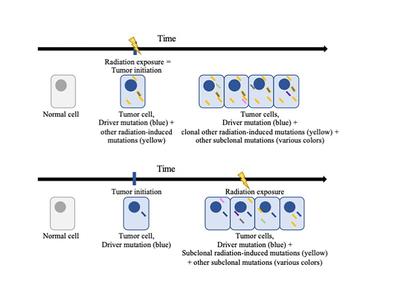
Genomic Analysis Distinguishes Thyroid Cancers Caused by Radiation
A multidisciplinary team used genomic analysis to determine whether papillary thyroid carcinomas (PTC) were likely caused by exposure to ionizing radiation. They used tumor samples from three groups: individuals exposed to radioactive fallout from the 1986 accident at the Chornobyl nuclear power plant, individuals from the same region who were born more than nine months after the accident and considered unexposed, and thyroid tumors in The Cancer Genome Atlas biobank. The findings were published August 22, 2025, in Science Advances.
-
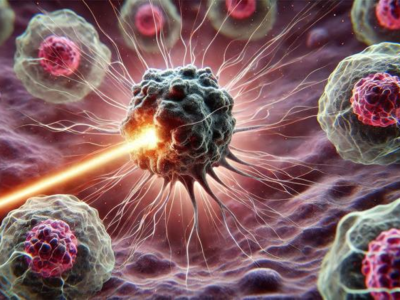
Research on Long Term Impacts of Proton and Photon Therapy Featured in NIH Intramural Blog
NIH Intramural Research Program highlights Dr. Kitahara's research on the impact of photon and proton therapies among childhood cancer survivors and their risk of second cancer.
-
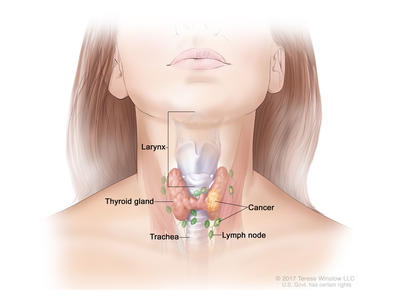
Fusion Genes Linked to Metastasis after Thyroid Cancer
Patients with papillary thyroid carcinomas, the most common thyroid cancer, driven by gene fusions are more likely to present with cervical lymph node metastases at diagnosis than those with PTCs driven by point mutations, study finds.
-
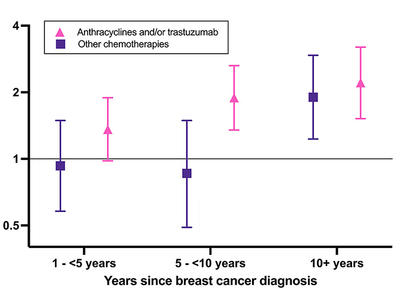
Breast Cancer Survivors Treated with Anthracyclines and/or Trastuzumab Have Long-term Increase in Cardiovascular Disease Risk
In the NCI-Kaiser Permanente Breast Cancer Survivors Cohort, DCEG experts observed increased risk of cardiovascular disease that breast cancer survivors treated with anthracyclines and/or trastuzumab that persisted 10+ years after diagnosis and was heightened for women diagnosed before age 65, compared to women who did not receive chemotherapy.
-
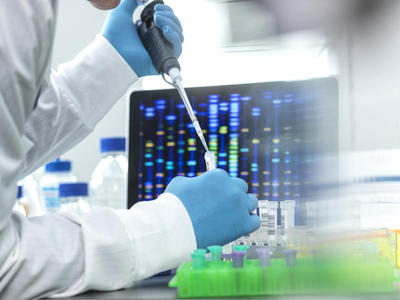
For Childhood Cancer Survivors, Inherited Genetic Factors Influence Risk of Cancers Later in Life
Common inherited genetic factors that predict cancer risk in the general population may also predict elevated risk of new cancers among childhood cancer survivors. Findings could potentially inform screening and long-term follow-up of those at greatest risk.
-

Early-Pregnancy Thyroid Autoimmunity Associated with Maternal Thyroid Cancer
Data from the Finnish Maternity cohort suggest early-pregnancy thyroid autoimmunity is associated with elevated risk for maternal papillary thyroid cancer and may shed light onto mechanisms of thyroid carcinogenesis.
REB Highlights
- Morton LM et al. Genomic characterization of cervical lymph node metastases in papillary thyroid carcinoma following the Chornobyl accident. Nat Commun. 2024.
- Morton LM, Dores GM. T-Cell Neoplasms after B-Cell Neoplasms - The Pre-CAR T-Cell Era. NEJM. 2024.
- Vo JB et al. Long-term cardiovascular disease risk after anthracycline and trastuzumab treatments in U.S. breast cancer survivors. J Natl Cancer Inst. 2024.
- Kitahara CM, et al. Early-pregnancy sex steroid and thyroid function hormones, thyroid autoimmunity, and maternal papillary thyroid cancer incidence in the Finnish Maternity Cohort. Int J Cancer. 2024.
- Gibson TM, et al. Polygenic risk scores, radiation treatment exposures and subsequent cancer risk in childhood cancer survivors. Nature Medicine. 2024.
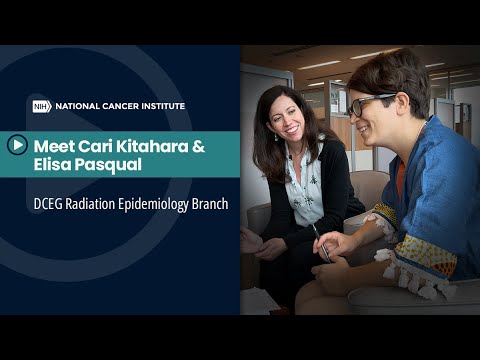
Meet Cari Kitahara & Elisa Pasqual in the Radiation Epidemiology Branch
Select Publications
View a list of REB publications.
- Little, M et al. Ionising radiation and cardiovascular disease: systematic review and meta-analysis. British Medical Journal. March 2022.
- Ho KL et al. County-level geographic disparities in cardiovascular disease mortality among U.S. breast cancer survivors, 2000-2018. JNCI Cancer Spectr. 2022.
- Veiga L HS et al. Treatment-related thoracic soft tissue sarcomas in US breast cancer survivors: a retrospective cohort study. The Lancet Oncology. 2022.
- Withrow DR et al. Pooled Analysis of Meningioma Risk Following Treatment for Childhood Cancer. JAMA Onc. 2022.
- Yeager M et al. Lack of transgenerational effects of ionizing radiation exposure in cleanup workers and evacuees of the Chernobyl accident. Science. 2021.
- Morton LM et al. Radiation-related genomic profile of papillary thyroid cancer after the Chernobyl accident. Science. 2021.
- Berrington de González A et al. Epidemiological studies of low-dose ionizing radiation and cancer: Rationale and framework for the Monograph and overview of eligible studies. JNCI. 2020.
- Linet MS et al. Outcome assessment in epidemiological studies of low-dose radiation exposure and cancer risks: Sources, level of ascertainment, and misclassification. JNCI Monographs. 2020.
- Gilbert ES et al. Issues in interpreting epidemiologic studies of populations exposed to low-dose, high-energy photon radiation. JNCI Monographs. 2020.
- Hauptmann M et al. Epidemiological studies of low-dose ionizing radiation and cancer: Summary bias assessment and meta-analysis. JNCI Monographs. 2020.
Courses & Workshops
-
Radiation Epidemiology and Dosimetry Course
A four-day course on the health effects of radiation exposure, given periodically.
-
International Society for Radiation Epidemiology and Dosimetry (ISoRED)
REB experts regularly host and participate in webinars as part of ISoRED's Community Building in Radiation Epidemiology and Dosimetry Research